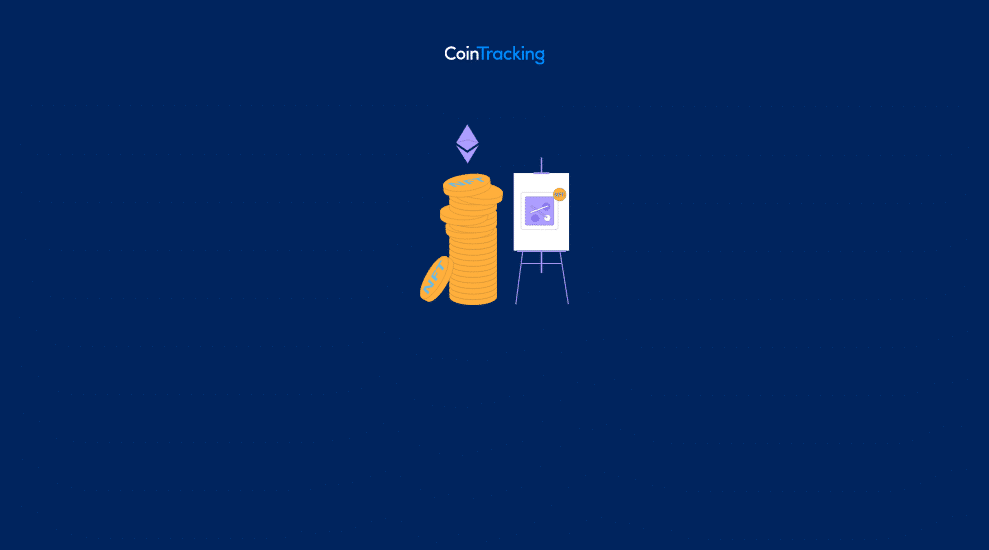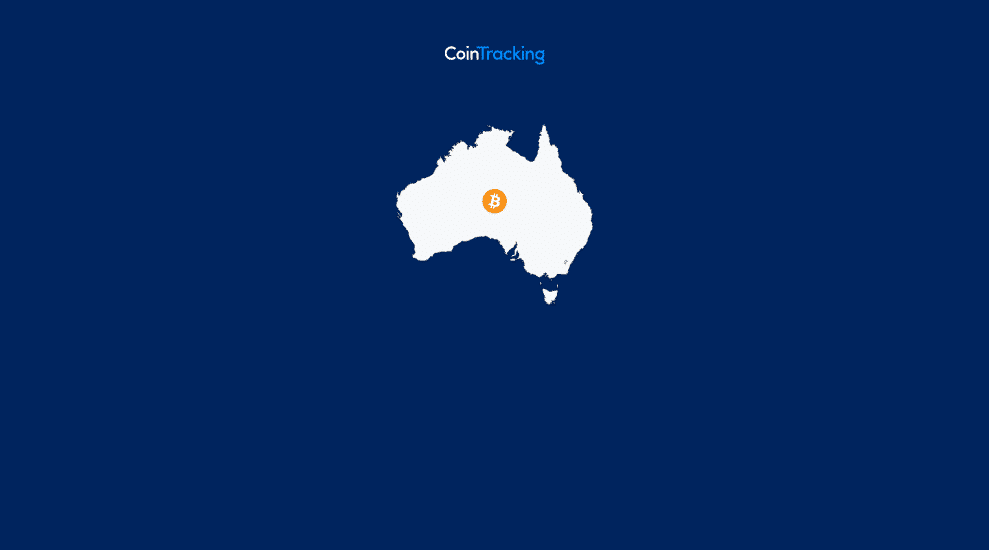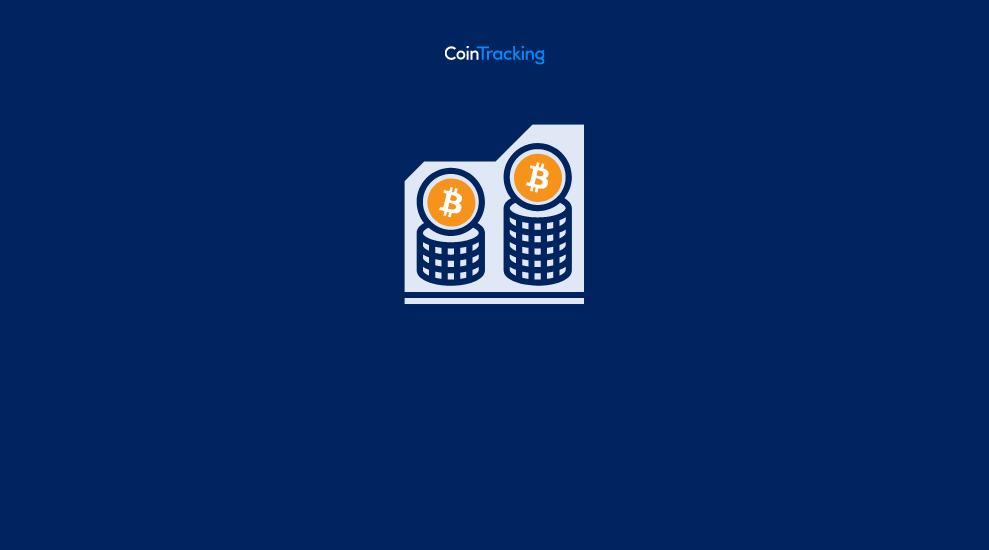Crypto Taxes in Australia: The Ultimate Guide 2024 [ATO Rules]
14 Jun, 2023 · 26 min read
The world of cryptocurrencies is constantly evolving, and with it, the tax implications for those who invest, trade, or simply use digital currencies. The Australian Taxation Office has set specific guidelines for crypto taxation, reflecting the growing importance and integration of digital assets in the financial ecosystem. In this article we’re focusing on Capital Gains Tax for crypto, Income Tax on crypto earnings, and the amount of tax you’ll be required to pay. Additionally, we’ll provide strategies to ensure you don’t end up paying excessive crypto taxes in Australia.
How Is Crypto Taxed in Australia?
The Australian Taxation Office (ATO) categorizes crypto as property and considers it an asset subject to Capital Gains Tax (CGT). This classification encompasses cryptocurrency coins, tokens, stablecoins and NFTs. However, based on the nature of individual transactions, crypto can also be considered additional income and thus be subject to Income Tax.

Crypto Taxes in Australia 2024: SIMPLE Video-Guide with Examples
Taxable Events and Transactions
In Australia, several key events or transactions involving cryptocurrencies are considered taxable. It’s important to understand these events as they form the foundation of how crypto taxes are applied. Some of these taxable events include:
- Selling or trading cryptocurrency
- Converting cryptocurrency to fiat currency (like AUD)
- Purchasing goods or services with cryptocurrency
- Earning cryptocurrency through mining or staking
- Gifting crypto assets
Each of these events triggers a tax consideration, which we will explore in more detail in the following sections.
Cost Basis and Valuation of Cryptocurrencies
When it comes to crypto taxation, understanding the cost basis and the valuation of your cryptocurrencies at the time of the transaction is crucial. The cost basis is essentially the original value of the crypto for tax purposes, usually the purchase price plus fees. Proper valuation is vital for accurately calculating any capital gain or loss when a taxable event occurs.
Crypto Tax Rates and Allowances
The taxation of cryptocurrencies in Australia largely revolves around capital gains tax, which applies to any gain made upon disposing of your cryptocurrency.
Crypto Capital Gains Tax in Australia
In Australia, if you sell, trade or gift cryptocurrency for more than you initially paid for it, you’ve made a capital gain, and this must be reported on your tax return. Conversely, a capital loss occurs if you dispose of your cryptocurrency for less than its cost basis. The following table shows the tax rates in 2023/2024 for Australian residents.
| Taxable income | Tax on this income |
|---|---|
| $0 – $18,200 | 0% |
| $18,201 – $45,000 | 19% of excess over $18,200 |
| $45,001 – $120,000 | $5,092 + 32.5% of excess over $45,000 |
| $120,001 – $180,000 | $29,467 + 37% of excess over $120,000 |
| $180,001+ | $51,667 + 45% of excess over $180,000 |
Australian tax rates for 2023/2024. This table does not not include the Medicare levy of 2%. Source ATO.
Short-Term and Long-Term Capital Gains Tax Rates
The tax rate applied to your crypto gains depends on the duration for which you held the cryptocurrency before disposing of it. Gains from crypto held for less than 12 months are considered short-term and are taxed at your regular income tax rate. However, if you hold your crypto for more than 12 months, you may be eligible for a long-term capital gains tax discount in Australia, typically 50% for individuals.
Calculating Crypto Gains in Australia
Navigating the complexities of cryptocurrency taxation can be challenging, but understanding how to calculate your crypto gains and losses is a fundamental aspect of being a responsible investor. In Australia, the approach to calculating these figures follows specific guidelines set by the Australian Taxation Office.
How to Calculate Crypto Gains and Losses
Calculating gains and losses on cryptocurrency transactions is a critical step in fulfilling your tax obligations. The fundamental formula for calculating a gain or loss is relatively straightforward:
Capital Gain/Loss = Selling Price − Cost Basis
Capital Gain/Loss = Selling Price − Cost Basis
Where the selling price is the value of what you receive when you dispose of the cryptocurrency, and the cost basis is the original value of the cryptocurrency when you acquired it. This calculation must be done in Australian dollars, requiring conversion if the original transaction was in another currency.
Comparative Example
Let’s consider a comparative example to understand this better:
Example 1: You bought 1 Bitcoin for AUD 10,000. Later, you sold it for AUD 15,000. Your capital gain is AUD 5,000.
Example 2: In another scenario, you bought 1 Bitcoin for AUD 10,000 but sold it later for AUD 8,000, incurring a capital loss of AUD 2,000.
These examples illustrate the basic principle of how gains and losses are calculated for cryptocurrency transactions.
FIFO vs. HIFO vs. LIFO
When it comes to calculating taxes on cryptocurrency transactions, the methods used to determine the cost basis of your assets can significantly impact your reported gains or losses. The ATO allows to choose between different methods:
- FIFO (First-In, First-Out): This method assumes that the first assets you purchased are also the first ones you sell. In a rising market, this often leads to higher tax liabilities as older, lower-cost assets are sold first.
- HIFO (Highest-In, First-Out): Under HIFO, the assets with the highest cost basis are sold first. This method can minimize tax liabilities in the short term, as it typically results in lower realized gains.
- LIFO (Last-In, First-Out): LIFO assumes that the most recently acquired assets are sold first. This can be beneficial in a declining market, as it might result in lower taxable gains or even a tax loss.
Reporting Crypto on Australian Tax Returns
You are obligated to report income and capital gains in your Annual Tax Return. The ATO requires detailed records of all your cryptocurrency transactions, including dates, amounts, what the transaction was for, and who the other party was (even if it’s just their wallet address.
How to Report Crypto Taxes to ATO
To report CGT on crypto assets in your tax return, you have the option to do it online using myTax or on a paper form. Reporting your cryptocurrency taxes to the ATO involves a few key steps:
- Record Keeping: Ensure you have detailed records of all your cryptocurrency transactions, including dates, amounts, and the nature of each transaction.
- Calculate Gains and Losses: As discussed earlier, calculate your capital gains and losses for each transaction.
- Complete Relevant Sections: On your tax return, you’ll need to report these gains or losses in the relevant sections. Generally, these are reported in the capital gains section of your tax return. The ATO provides a video guide on how and where to enter your capital gains.
When to Report Your Cryptocurrency Taxes in Australia
In Australia, the financial year runs from 1st July to 30th June the following year. You must report your cryptocurrency taxes as part of your annual tax return. This means you’ll need to have all your records ready and your calculations done in time for tax filing deadlines, typically by 31st October each year, unless you are using a registered tax agent who may have extended deadlines.
Trader vs Investor
In the context of cryptocurrency and taxation, the distinction between being classified as a trader or an investor has significant tax implications. Understanding which category you fall into is crucial for accurately reporting your crypto activities to the Australian Taxation Office.
Trader
A trader is someone who engages in frequent buying and selling of cryptocurrencies as part of a business activity. Key characteristics include:
- Business Intent: Operating with a clear intention to profit from short-term market fluctuations.
- Volume and Frequency: Engaging in regular and substantial trading activity.
- Organized Approach: Maintaining a systematic, business-like approach to trading.
For traders, profits from cryptocurrency transactions are typically treated as business income rather than capital gains. This means that the income is subject to regular income tax rates, but it also allows for more deductions related to the cost of trading and running the business.
Investor
An investor typically buys cryptocurrencies with the intention of holding them long-term, aiming for capital appreciation. Characteristics include:
- Long-term Focus: Holding assets for a longer duration, often for capital growth.
- Lower Frequency of Transactions: Fewer buy and sell activities compared to a trader.
- Investment Strategy: More focused on the long-term potential of assets rather than short-term market movements.
Taxation of Different Crypto Transactions
Cryptocurrency transactions come in various forms, each with its own tax implications under Australian law. This section explores the taxation of different types of crypto transactions, providing clarity on how they are treated by the Australian Taxation Office.
Crypto Trading Tax in Australia
Profits made from buying and selling cryptocurrencies are subject to capital gains tax. If you’re trading cryptocurrencies as a business activity, the profits may be considered business income instead.
Tax Implications of Crypto to Crypto Trades
Trades between different cryptocurrencies including stablecoins are considered taxable events. Each trade represents a disposal of one cryptocurrency and an acquisition of another, potentially resulting in a capital gain or loss.
Staking Taxes in Australia
Rewards earned from staking cryptocurrencies are generally considered taxable income at the time it is received. The value of the staked crypto is also subject to CGT upon disposal.
Taxation of Crypto Mining in Australia
Mining as a hobby: Coins received as rewards are rather not considered income. Upon disposal of the coins received, they will be subject to Capital Gains Tax.
Mining as a business: Rewards from mining cryptocurrencies are taxable as income at the time it is received. The mined cryptocurrency’s value at the time of receipt forms the cost basis for CGT calculations upon disposal.
Airdrops and Their Tax Implications
Airdrops are generally considered taxable income at the market value of the cryptocurrency when received. They are also subject to CGT upon disposal.
There is a particular exception for initial allocation airdrops. According to the Australian Taxation Office, these airdrops are not deemed as ordinary income when received, and thus are tax-free. The cost basis for these tokens is the amount you paid for them, or zero if you acquired them for free.
Hard Forks Taxation in Australia
Coins acquired as a result of a hard fork are not subject to Income Tax. The cost basis for the new coins obtained from a hard fork is considered to be zero. In the event of selling or swapping, the coins are subject to CGT.
Taxes on Crypto Payments
Using cryptocurrencies for payments for goods or services can trigger a CGT event, as it’s considered a disposal of the cryptocurrency.
Taxes on Crypto Gifts in Australia
Gifting cryptocurrency can be a CGT event for the giver, potentially resulting in a capital gain or loss. The recipient’s cost basis is the market value of the crypto at the time of the gift.
Taxes on Crypto-Donations
Donating cryptocurrency to a qualified charity can qualify for a tax deduction.
NFT Taxes in Australia
Non-fungible tokens (NFTs) are subject to similar tax treatments as cryptocurrencies. Profits from buying and selling NFTs can incur CGT.
Tax Implications on Transferring Crypto
Transferring crypto between your own wallets does not trigger a CGT event. However, transfers to others can be considered disposals.
DeFi Taxation in Australia
Lending Taxes
Interest earned from lending cryptocurrencies is treated as income and is taxable the time you receive it. Additionally, any increase in the value of the lent cryptocurrency is subject to CGT upon disposal.
Liquidity Mining Taxes
Rewards earned from liquidity mining are subject to income tax. The fair market value of the rewarded tokens at the time of receipt, forms the basis for income tax calculations.
The following events are subject to Capital Gains Tax:
- Adding liquidity to liquidity pools
- Removing liquidity from liquidity pools
- Disposal of the tokens received from liquidity mining
Optimizing your Crypto Tax Liability in Australia
In Australia, the tax system provides certain avenues through which investors and traders can reduce their tax burden associated with crypto transactions. Here are seven strategies that can help you reduce your tax bill:
- Hold Cryptocurrencies Long-Term: By holding your cryptocurrencies for more than 12 months, you may be eligible for the 50% Capital Gains Tax discount.
- Offset Gains with Losses: If you have made losses on some of your crypto investments, these can be used to offset capital gains made on others. This process, known as ‘loss harvesting’, can significantly reduce your overall taxable gains.
- Utilize Tax-Free Thresholds: For certain small transactions, you might not owe any tax. For instance, personal use asset exemption in Australia might apply if the cost of your cryptocurrency is AUD 10,000 or less.
- Choose Your Cost Basis Method Wisely: Deciding between different cost basis methods (FIFO, LIFO, HIFO) can impact your realized gains and losses. Choose a method that aligns with your investment strategy and tax situation.
- Consider a Self-Managed Super Fund (SMSF): Investing in cryptocurrency through an SMSF can offer tax benefits, as earnings within an SMSF are taxed at a concessional rate.
- Keep Detailed Records: Accurate record-keeping of all your transactions can help you track acquisition costs, disposal proceeds, and the duration of holding, which are all crucial for calculating your potential tax liability.
- Seek Professional Advice: Due to the complexities of crypto taxation, consulting with a tax advisor who specializes in cryptocurrency can provide you with tailored strategies to minimize your tax obligations.
Crypto taxes in other countries
Cryptocurrency taxation varies significantly across different jurisdictions. Let’s briefly explore how crypto is taxed in some other countries.
Crypto Taxes in the US
In the United States, cryptocurrencies are treated as property for tax purposes. This means that they are subject to capital gains tax and income tax, depending on the nature of the transaction. The IRS requires taxpayers to report all cryptocurrency transactions.
Crypto Taxes in Canada
In Canada, the Canada Revenue Agency (CRA) treats cryptocurrencies as a commodity. Transactions involving crypto can be taxed as business income or as a capital gain, depending on the circumstances.
Crypto Taxes in Germany
Cryptocurrency regulation in Germany can be complex. Notably, if you hold a cryptocurrency for more than one year, any gains from its sale are tax-free. Short-term gains are subject to your personal income tax rate, with specific exemptions available.
Frequently Asked Questions
about Crypto Taxation in Australia
Conclusion
In summary, understanding and managing crypto taxes in Australia can be a complex task, but with the right information and tools, it becomes much more manageable. For those looking for an efficient way to track and manage their crypto taxes, the CoinTracking software offers a comprehensive solution. It simplifies record-keeping, calculates gains and losses, and helps in preparing reports for tax filing, making it a valuable asset for any crypto investor or trader in Australia.
Note: This article is for informational purposes only and does not constitute financial or tax advice. Always consult with a professional before making any decisions.
Share this









